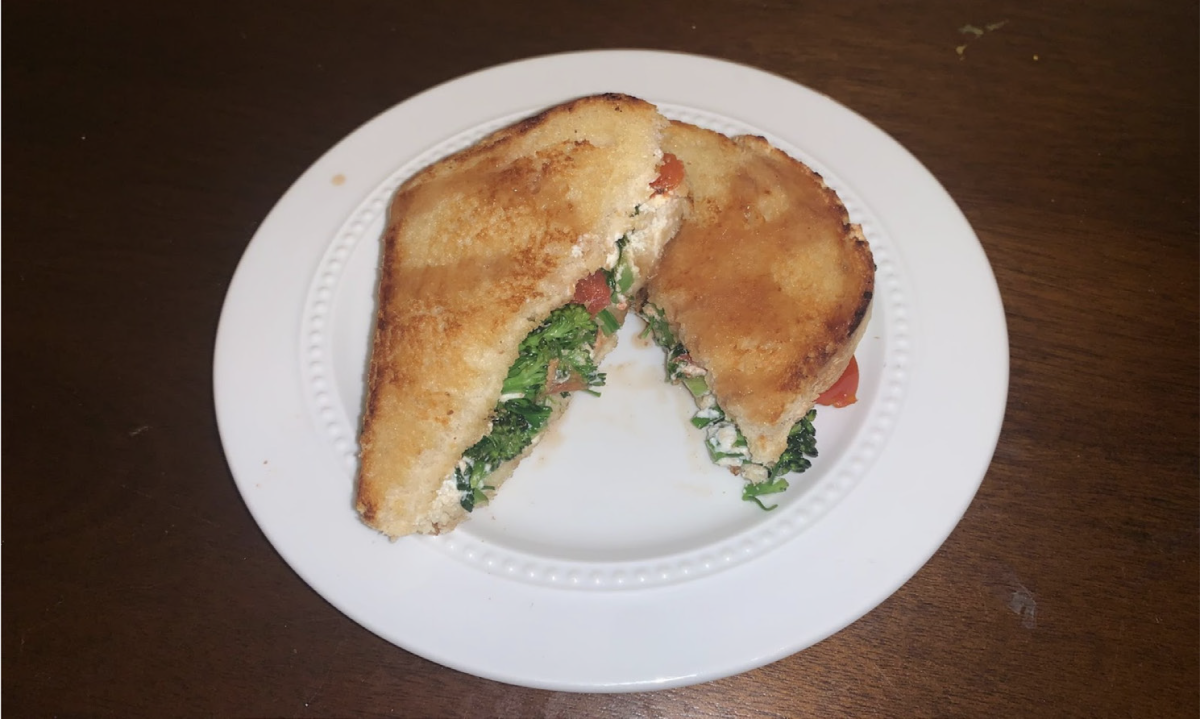“I left an old cookbook in your car, honey.”
“Okay, Grandma,” I said, discreetly rolling my eyes. I knew I would never use that cookbook. I hated cooking. It’s tedious, time-consuming and I had no interest in falling into a gendered stereotype.
My fears are not unfounded. In a 2014-2016 study by the Bureau of Labor Statistics, more than 80% of women with children said they do the cooking rather than their male counterparts. But while cooking is primarily done by women at home, the professional cooking world is dominated by men. According to the 2020 U.S. Census, a bit more than quarter of women are professional chefs.
I wanted no part of a world in which men are breadwinners while women are expected to be the bread makers.
“There’s no glory in it when you’re doing it at home,” agreed Marissa McClellan ’07, M.A., author of four cookbooks and a blog, “Food in Jars.”
“Home cooking is relentless and thankless for the most part,” McClellan said. “For men, there hasn’t been this expectation that they are the ones who cook at home, and they do things for a profession because they’re going to receive benefits, encouragement and praise for it. You don’t get any of that in the home.”
Helen Koenig, M.D., associate professor of medicine and infectious diseases at the Hospital of the University of Pennsylvania, is a working professional with three children. She said juggling her job and cooking is difficult, though she splits the job of cooking “pretty equally” with her husband, who is a trauma surgeon.
“We’ve tried a variety of things over the years, but I would say, a combination of trying to make the meals as easy during the week as possible, and sometimes having people help us during the week,” Koenig said.
I never wanted to put that much effort into my meals. When I got to college, I became the queen of the microwave, Doordash and PB&J sandwiches.
But recently I started thinking about that cookbook, “Food Networks Favorites,” which my grandmother had tossed in my car this past summer. Maybe there was a way to cook, to be creative and to challenge myself with something new without the weight of gendered oppression fogging my view.
I looked through the book for some recipes that sparked my interest and set out to find the ingredients. As a beginner and a vegetarian, I chose a recipe called “Pan-Grilled Veggie Sandwiches with Ricotta, Arugula and Balsamic.”
I am not a fan of arugula, so I made a bold, executive decision to use spinach instead. I first oiled the pan and chopped up baby broccoli, tomatoes and spinach. As the vegetables simmered and the smell of seasonings wafted through my kitchen, I started to feel excited.
Emma Gugliemini ’23, creator of @emmaseats, an Instagram food blog, knows that feeling. She was a senior in high school when she first began to cook. She started simple, with oatmeal, adding different ingredients and toppings.
“It was a pre-college thing, thinking, ‘I’m going to be in college soon and I won’t have a kitchen, let me try and do things while I have a kitchen and [can] experiment,’” Gugliemini said.
Gugliemini’s love for cooking and sharing recipes took off in 2020 during the covid-19 lockdown when she started @emmaseats. The blog quickly gained traction with followers sending positive feedback and tagging Gugliemini in different posts asking her to make a specific recipe.
Unlike Gugliemini, I was the only one cheering myself on while making my fancy sandwich. After I pan fried the vegetables, it was time to toast the bread and spread the ricotta. I took the warm bread out of the toaster and spread a thin but hearty layer of ricotta cheese.
Next, I layered the vegetables on top, forming a rainbow of delectibillity. Once the vegetables were draped beautifully over the cheese, I added some chopped baby spinach and finished the creation off with a balsamic glaze.
As I topped off my sandwich with the final piece of bread, the last step was to take a bite.
I was shocked that something this tasty was made by a novice like me. Pairing my meal with a glass of Chardonnay, I sat and enjoyed what I had cheffed up. Although I was definitely out of my element, rather than feeling oppressed by stigma, I felt empowered by this task.
I asked my grandmother, Valerie Cirucci, how she feels after she makes a meal for herself or our family.
“I love to cook,” she said. “My happy time has been in the kitchen cooking. I love, love, love it. It gives me peace. It’s almost like my zen time.”
I’m not sure I’ll ever love cooking the way my grandmother does. But it’s nice to know that I have the freedom to choose when and what to cook, and to enjoy the satisfaction of eating something I created myself, for myself.














































